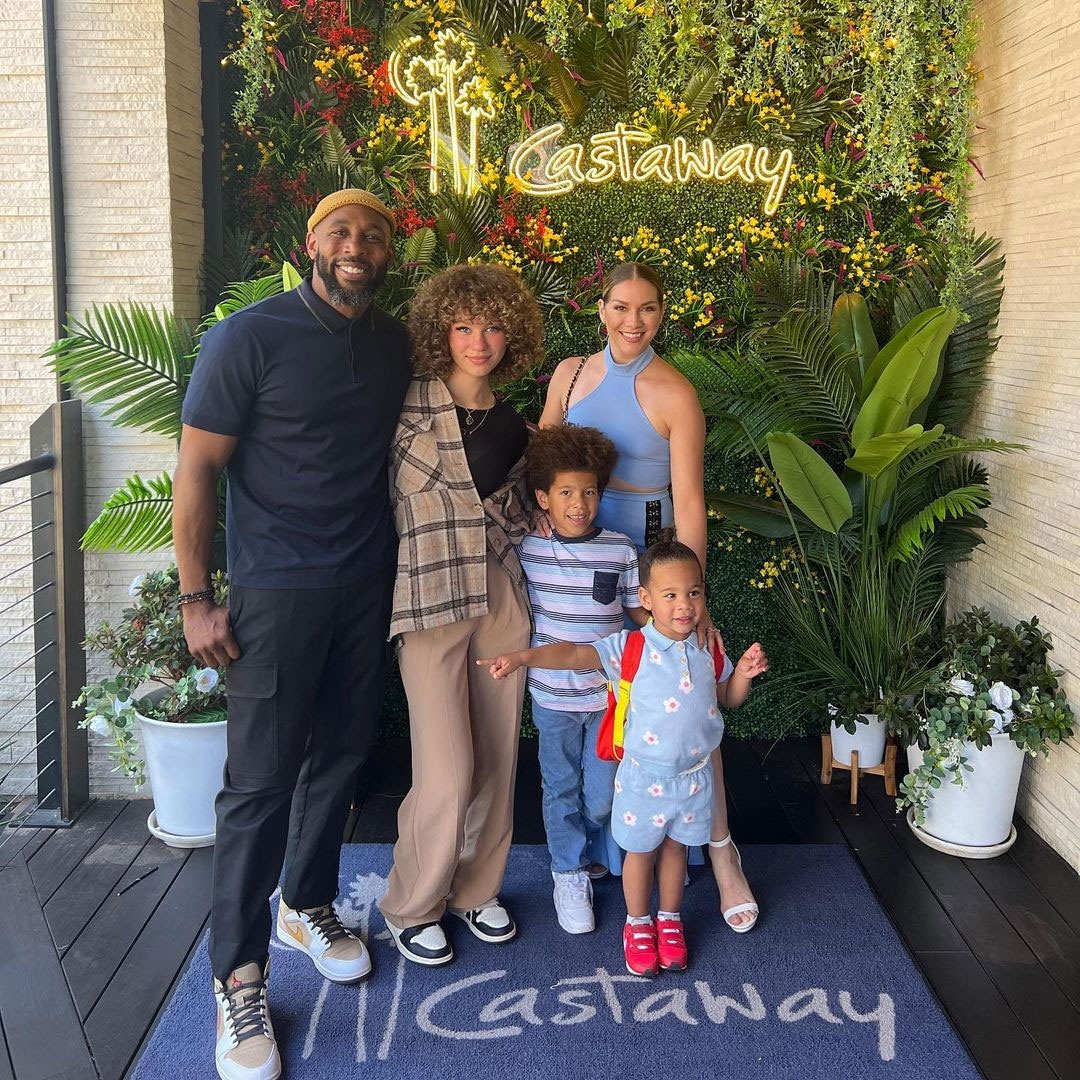Table of Contents
Rising Tensions Over Memoir’s Release
Allison Holker’s forthcoming memoir, “This Far,” set to release on February 4th, has ignited a contentious response from the family and friends of her late husband, Stephen “tWitch” Boss. The controversy intensified following Holker’s interview with PEOPLE magazine, where she disclosed finding undisclosed substances in their home after Boss’s tragic suicide in December 2022. This disclosure has led to public backlash from those close to Boss, who have taken to social media to express their concerns, describing the promotional activities for the memoir as a “smear campaign.”
During the interview, Holker revealed the emotional and disturbing details of discovering a variety of drugs hidden inside shoeboxes while sorting through Boss’s belongings. The drugs included mushrooms, pills, and other substances unfamiliar to Holker, which she felt compelled to research online. This revelation occurred as she and a close friend were preparing Boss’s final outfit for his funeral—an experience that Holker described as profoundly triggering. She expressed her shock and alarm at the extent of her husband’s hidden life, which she had been completely unaware of until that moment.
:max_bytes(150000):strip_icc()/Stephen-tWitch-Boss-Allison-Holker-IMDb-Exclusive-Portrait-Studio-010725-a8ff33b54fd14be5bca575a90f04005f.jpg)
Holker shared how the discovery significantly impacted her emotional state during an already devastating time. “It was a really scary moment in my life to figure that out,” Holker recounted, indicating the deep emotional toll it took on her. The realization that Stephen ‘tWitch’ Boss had been concealing his struggles with substances added a layer of complexity to her grief, introducing feelings of fear and confusion. Holker reflected on the possible shame Boss felt, which might have driven him to hide his problems so thoroughly, contributing to her feelings of helplessness and sorrow.
Reflections on Grief and Understanding
In her recounting, Holker delves deeper into how these revelations have shaped her grieving process. The experience of uncovering her husband’s secret struggles with addiction and mental health challenges has forced her to confront painful truths about their life together. Holker suggested that understanding these hidden aspects of Boss’s life was crucial in helping her come to terms with his passing. By sharing these personal and painful details, Holker aims to process her grief publicly and perhaps find some solace in opening up about her late husband’s battles, which were far more complex than she had known.
Holker’s upcoming memoir, together with the recommendation of various media, has started not only much controversy, but also conversations on the intricacies of mental health, addiction, and how the sudden loss of a loved one affects the survivors. To all the people who oppose her, Holker seems to be adamant in her decision to work towards these issues and allows for a space where the challenges that are usually unmentioned are addressed. Holker herself has made it clear that she wants to pay tribute to her late husband, and to people like him who have had to live inside their darkness by openly talking about it, in an aim to sensitize the masses to their reality.
Courtney Ann Platt, a friend of the deceased, Stephen “tWitch” Boss, has turned to social media to express herself in an aggressive manner against Allison Holker’s memoir “This Far”. On the Tuesday of last week, Platt uploaded a screenshot of the story on her Instagram page with an elaborate caption which certainly did not soft pedal her views on the memoir and the accompanying publicity. Platt, known for her straightforward approach to conflict, expressed her dismay over the public handling of such a sensitive issue, particularly after maintaining her silence for two years.
Platt’s Deep Connections and Heartfelt Critique
Platt shared her deep personal connections with the couple, noting her presence at both their engagement and wedding, which added weight to her critique. She labeled the memoir and its promotion as “the most tacky, classless, opportunistic act I have ever seen in my entire life.” This harsh criticism reflects her sense of betrayal and shock at the actions taken by Holker, contrasting sharply with the joyful personal moments they once shared.
The controversy deepened as Platt disclosed the unusual requirement at Boss’s funeral, where attendees, including Boss’s own mother, were asked to sign nondisclosure agreements. Platt’s outrage at this request highlighted her perception of Holker’s disregard for Stephen ‘tWitch’ Boss family during their time of grief. She accused Holker of mistreating Boss’s mother and exploiting Boss’s legacy for personal gain, suggesting that these actions were deeply disrespectful to his memory and to those who loved him.
Platt continued her vehement defense of Boss’s character against what she views as a public smear campaign facilitated by the memoir. She argued that the tell-all book dishonors Stephen ‘tWitch’ Boss memory by airing private issues and presenting him in a negative light, which she asserts was never the intention of anyone close to him during the time of his funeral. Platt’s emotional response painted a picture of a man who was a “bright loyal, loving, light,” and she expressed her frustration and sadness over the perceived tarnishing of his image through the memoir.
Emotional Plea for Respect and Integrity
Ending her impassioned plea, Platt emphasized the contrast between the loving and loyal friend she knew and the portrayal that she fears will emerge from the memoir. Her statement on Instagram not only challenged the narrative set forth in Holker’s book but also called for a more respectful and considerate approach to honoring Boss’s memory. Platt’s words remind us of the depth of suffering the public disclosures can inflict on the relatives of the deceased and thus appeal to being cautious with the narrative – preservation of the dignity of the dead. Together with the preservation of the dignity of the deceased, another concern is the ICU narrative.

Courtney Ann Platt strongly disagrees with the inclusion of excerpts from Stephen “tWitch” Boss’s personal journals in Allison Holker’s memoir. Platt described the action as exploiting private thoughts for public consumption, questioning the empathy and respect behind such a decision. “What a joke. Yes, he took his own life which is a fact all of us still can’t fathom, and he was clearly having mental health issues, hurting so deeply and this is your example of empathy? Of your love?” Platt’s comments reflect her deep dismay and disbelief at the use of Boss’s most private writings, seeing it as a violation rather than a tribute.
Platt’s statement culminates in a powerful condemnation of what she perceives as a commercialization of Boss’s tragedy. She labeled the efforts to profit from Boss’s story as a “smear campaign for a buck,” which she vehemently argues is contrary to what Boss would have wanted. “You’re a living, breathing bulldozer. Stick to your own demons. Shame on you, Allison, shame on your money-hungry team. Let my friend Rest in Peace not your PR,” Platt stated, emphatically urging Holker and her team to reconsider their approach and respect Boss’s legacy.
Family Support for Platt’s Sentiments
Adding to the intensity of the backlash, Dré Rose, the brother of the late Stephen ‘tWitch’ Boss, echoed Platt’s sentiments by sharing her post on his Instagram Stories. His brief comment, “No lies told…” along with the reposting of similar disapproving messages from others, shows a family united in their discomfort with the memoir’s revelations and the way they have been handled. This collective family response underscores the deep wounds opened by the memoir’s publication and the perceived misrepresentation of Boss’s life and struggles.
While a representative for Allison Holker chose not to comment when approached by Entertainment Weekly, Holker herself has previously stated that her intention in releasing the memoir was to aid others who might be facing similar struggles by sharing her and Boss’s experiences. In her interview with PEOPLE, she expressed hopes that the stories could provide comfort or understanding to those dealing with grief or mental health issues, suggesting a motive of spreading awareness and fostering connection rather than exploitation.
This controversy highlights the complex dynamics of personal legacy and public disclosure, particularly when dealing with sensitive issues like mental health and grief. The differing perspectives on Holker’s memoir reveal a deep divide between those who see the publication as a healing tool and those who view it as an unwelcome and painful exposure of a beloved figure’s most private moments.
Holker’s Intensive Reflection on Late Husband’s Struggles
Allison Holker shared in an in-depth discussion about the complex process of piecing together her late husband Stephen “tWitch” Boss’s life challenges, particularly those from his childhood that he never fully addressed. In a recent interview, she described how difficult it was to reconcile the man she knew with the private pains he had concealed. “Through certain discussions, even with friends and things that have been said, reading through his journals… you realize he went through a lot as a child and never faced it,” Holker expressed. She reflected on the profound sadness of realizing that Boss had carried these burdens alone, without ever fully opening up to those who might have helped him navigate his pain.
Holker articulated her hope that by sharing these personal and painful revelations, she might help others who are suffering in silence. “It’s hard to think that he never opened up to someone and wanted to face it, to get through on the other side,” she said, emphasizing the importance of confronting personal demons to heal. Holker expressed her aspiration that the story would encourage individuals dealing with similar issues to seek help and find solace in the knowledge that they are not alone. “I really hope people dealing with the same thing will help themselves out of the shadows and [know] you’re going to be okay,” she added, aiming to inspire hope and action among those facing their own struggles.
Amplifying the Message on Social Media
Following the interview, Holker actively promoted the discussion on her social media platforms, particularly Instagram. She shared the PEOPLE interview on her Instagram Stories to ensure it reached a broad audience, highlighting the importance of the message she was trying to convey. Additionally, Holker posted several messages of support from friends and fans, underscoring the positive feedback and communal backing she received for her openness.
Among the supportive reactions, actress and dancer Jenna Dewan stood out with her heartfelt message. “Love you @allisonholker and sharing this will help others reach out for help,” Dewan wrote, praising Holker for her courage and the potential impact of her sharing. This support from a fellow entertainer not only bolstered Holker but also highlighted the solidarity within the entertainment community for addressing mental health issues and supporting those who choose to speak publicly about personal and painful experiences.
Holker’s decision to share such personal aspects of her and her late husband’s life was not made lightly. By choosing to speak openly, she not only paid tribute to her husband’s complex legacy but also extended a hand to others who might be suffering in silence. Her actions serve as a call to reduce stigma around mental health and encourage open discussions that could lead to healing and support for many.



